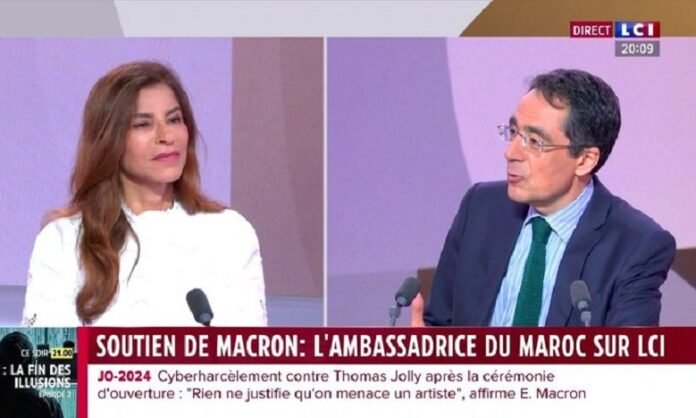Samira Sitaile, Morocco’s Ambassador in Paris, has confirmed that France’s recognition of Moroccan sovereignty over Western Sahara was not a surprising decision but rather the culmination of long discussions between the two countries. This development has helped restore warmth to the relationship after nearly two years of diplomatic tension. In a joint interview with “Europe 1” and “CNews,” Sitaile highlighted the significance of this step and how it reflects a positive outcome of the discussions between Paris and Rabat.
#Maroc 🇲🇦#France 🇫🇷
Interview de l' Ambassadeure Samira #Sitaïl sur @LCI avec @DariusRochebin :
"Les cases de la confiance ont été cochées les unes après les autres et nous avons imaginé une feuille de route pour aller là où personne n'est encore allé. "https://t.co/aJqOXx0bxW— Ambassade du Royaume du Maroc en France 🇲🇦 (@AmbaMarocFrance) August 3, 2024
Analysis of the French Position:
- Commitment to Moroccan Sovereignty: French President Emmanuel Macron, in his letter to King Mohammed VI, stated that “the present and future of Western Sahara fall within the framework of Moroccan sovereignty.” This statement confirms France’s consistent stance on the regional dispute and supports Morocco’s 2007 autonomy proposal as the primary solution to the conflict.
- Improvement in Bilateral Relations: Sitaile mentioned that this development reflects ongoing efforts to rebuild relations between France and Morocco, which have addressed several issues since October. The new French stance represents the success of these discussions and returns relations to their normal course after a period of diplomatic coolness.
- International Reactions: France’s announcement coincided with Morocco’s Throne Day on July 30, adding symbolic significance and giving a strong boost to bilateral relations. Despite Algeria’s escalation against France, including recalling its ambassador and threatening economic measures, Sitaile questioned Algeria’s silence on the U.S. support for Moroccan sovereignty over Western Sahara in 2020.
Potential Impacts:
- Enhancement of Moroccan-French Relations: France’s recognition is expected to improve relations between Paris and Rabat as France seeks to open a new chapter of cooperation with Morocco, strengthening the kingdom’s role as a strategic ally in North Africa. This improvement comes at a time when France needs reliable partnerships in a geopolitically sensitive region.
- International Recognition of the Autonomy Proposal: France’s step reinforces international support for Morocco’s autonomy proposal under its sovereignty, as Morocco aims to secure support from around 100 countries for the proposal as a solution to the dispute with the Polisario Front, backed by Algeria.
- Negotiation Opportunities: Morocco asserts that the autonomy proposal represents a “real opportunity” to initiate negotiations aimed at reaching a final resolution to the conflict. This position underscores Morocco’s commitment to finding a consensual settlement that aligns with the goals and principles of the United Nations Charter.
Conclusion:
France’s recognition of Moroccan sovereignty over Western Sahara reflects a positive shift in relations between Paris and Rabat and strengthens international support for Morocco’s autonomy proposal. This step is not merely a diplomatic escalation but represents a turning point in France’s policy towards Western Sahara, opening new avenues for strategic cooperation between the two countries and enhancing the prospects for a final resolution to the regional dispute.


